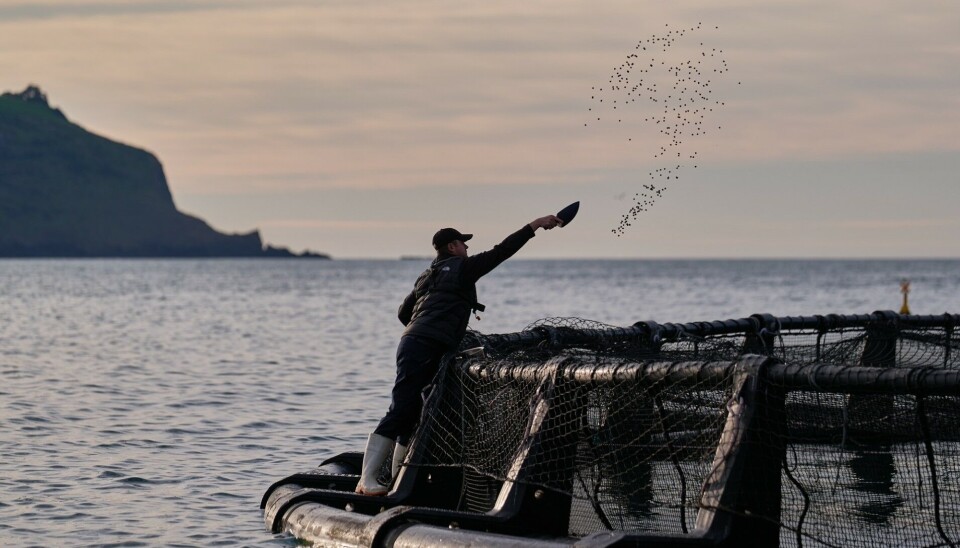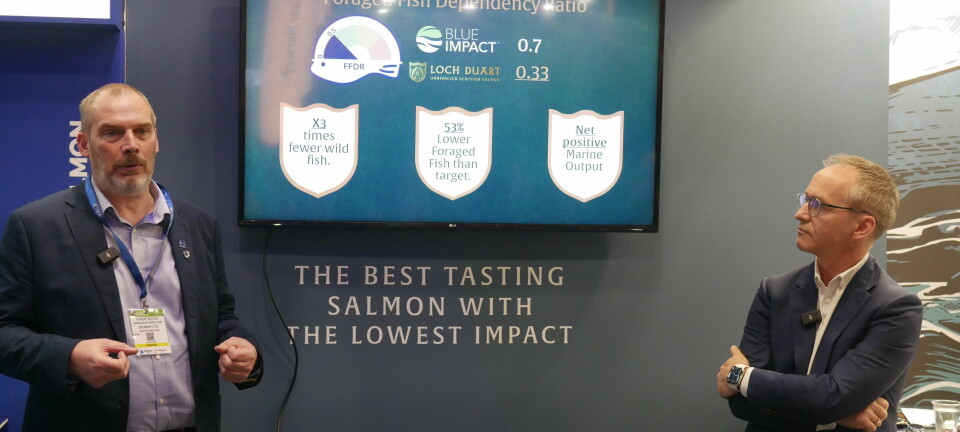
BioMar signs up first king salmon farmer for Blue Impact feed
New Zealand producer adopts lower impact diet after success with algal oil trial
Kiwi fish farmer Akaroa King Salmon has become the first king salmon (Oncorhynchus tshawytscha) producer globally to adopt the innovative Blue Impact feed program developed by Denmark-headquartered feed producer BioMar.
This Blue Impact initiative supplements wild-caught fish in feed
formulations with cultivated algal oil, fish trimmings, and insect meal. BioMar
says the approach significantly reduces the impact on wild fish stocks while
utilising clean, sustainable sources of omega-3 to produce the healthiest fish
possible.
As an early adopter of the technology, Akaroa Salmon trialled the algal oil, achieving outstanding results with its salmon that led to the company winning the Seafood NZ “Future Adaptation” award in 2023. Building on this success, Akaroa Salmon’s partnership with BioMar now includes using novel ingredients such as insect meal and fish trimmings sourced from pelagic fish in their feed. This initiative will see Akaroa King Salmon become a net positive fish producer, committed to lowering its carbon footprint while incorporating regenerative and circular feed ingredients.
1,000 tonnes per year
Akaroa King Salmon, which produces around 1,000 tonnes of king (chinook) salmon annually, is an entirely New Zealand owned partnership that includes Ngāti Porou, Ōnuku Runanga - the mana moana (or guardians) of Akaroa Harbour - and the founding Bates family. This partnership has a whakawhanaungatanga (relationship) based around intergenerational sustainability, aiming to provide local employment and healthy seafood for today and future generations.
The company has an ocean farm in Akaroa, around 50 miles from Christchurch where it operates a smokehouse and factory.
Duncan Bates, founder and managing partner of Akaroa King Salmon, said: “When I first started farming salmon in Akaroa Harbour, almost four decades ago, the feed ingredients essentially relied on wild caught fish as the raw material, and we fed up to 3kg of wild fish to grow 1kg of farmed salmon. Clearly, this wasn’t a sustainable practice.
“With the introduction of Blue Impact, Akaroa King Salmon have started our journey to become a positive fish protein producer, a far cry from those days long ago and a testament to our ongoing aspiration to become a truly sustainable food producer. I am particularly excited to use novel ingredients like insect meal, utilising waste streams previously going to landfill.”
High expectations
Nik Mavromatis, marketing and sales manager for Akaroa Salmon, said: “Our customers have high expectations – they want us to continue raising the finest tasting king salmon while also being mindful of the broader environmental impact, without compromising on the health benefits. I’m thrilled about the future of aquaculture as we blend our farming expertise with the technical expertise of BioMar around innovative new ingredients like oil from microalgae.”
Blue Impact feeds are designed as an individualised journey that requires continuous improvements across all three impact parameters: Forage Fish Dependency Ratio (FFDR), percentage of circular and restorative raw materials, and carbon footprint. This concept requires utilising innovative novel ingredients such as insect meal, regenerative agricultural products, and trimmings from seafood processing in ascending levels of inclusion in each successive version of the feed.
Mike Thomson, commercial director for BioMar Australia said he was not surprised that Akaroa had committed to using Blue Impact feed.
Future-proofing aquaculture
“Companies like Akaroa who are dedicated to sustainability and utilising more circular and restorative ingredients are necessary for future-proofing the aquaculture industry. Using sustainable novel ingredients is essential for decoupling feed and food supply chains and provides novel ingredient producers the confidence to invest in R&D, upscaling, and commercialisation, increasing the availability of these ingredients industry wide.
“We are excited to partner with Akaroa on their sustainability journey. Both companies are very ambitious in this area, and I expect we will constantly be pushing one another to achieve important sustainability targets and milestones. This kind of partnership leads to innovative solutions and meaningful sustainability advancements for seafood.”























































